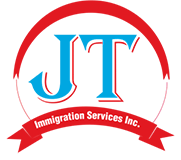Has the coronavirus pandemic changed or delayed your plans to move to or from Canada? We understand your pain! These unpredictable times have caused lots of confusion and affected countless people around the world.
To help you stay on top of recent changes to Canada’s immigration policies, we compiled a few of the most important changes that could affect your relocation plans.
-
Delayed application processing
Due to the impacts of coronavirus disease (COVID-19), Canada is unable to process immigration applications normally or provide accurate processing times. Currently, they are prioritizing applications from Canadians who want to return to Canada, vulnerable people, and anyone who performs or supports essential services.
If you don’t fall into one of the priority categories, your application might be delayed. Try to allow plenty of time for your visa application before you need to travel.
-
Most visitors prohibited until further notice
Even if you have a valid visitor visa or electronic travel authorization (eTA), you might not be allowed to travel to Canada. You’re only eligible to travel to Canada if you’re travelling for an essential (non-discretionary) purpose. If you’re arriving from outside the United States, you must also make sure your country of origin isn’t subject to travel restrictions.
There’s good news. You might be exempt from the travel restrictions. If an immediate family member is a Canadian citizen or permanent resident, you can travel to Canada for any purpose.
-
International students can travel to Canada
If you have a valid study permit, or if you were approved for a study permit on or before March 18, 2020, you are permitted to travel to Canada.
Before travelling to Canada for your studies, you must be prepared to travel safely and follow new guidelines. For example, your airline will require you to pass a health check before travelling by air. If you’re showing signs of COVID-19, you won’t be permitted to travel. After arriving in Canada, your health will be assessed. Even if you don’t have symptoms, you must plan to quarantine for at least 14 days.
-
Some temporary workers can travel to Canada
Temporary workers are exempt from travel restrictions if they are travelling to Canada for an essential (non-discretionary) purpose. However, essential workers must follow all restrictions for air travel, including passing the airline’s health screening and wearing a mask during travel. If you’re a temporary worker, be prepared to quarantine for at least 14 days after you arrive in Canada.
-
If you’re already in Canada, renew your status online
If you’re a visitor, international student, or temporary worker in Canada, you won’t be able to travel from inside Canada to apply or renew your status at a port of entry. Eligible applicants must apply online.
If your visitor status, or study or work authorization hasn’t expired, you can apply online to extend your stay in Canada. If you have a valid study or work authorization, but you’re no longer studying or working, you can apply to change your status to visitor. And if you’re continuing to study or work, you may be eligible to extend your work or study permit.
For more information about the effects of coronavirus on Canada’s immigration policy, visit: https://www.canada.ca/en/immigration-refugees-citizenship/services/coronavirus-covid19.html
At JT Immigration, we want to help you remain calm and confident during these uncertain times. If you have questions or concerns about your immigration status and how you might be affected by COVID-19, contacts us to schedule a consultation.
